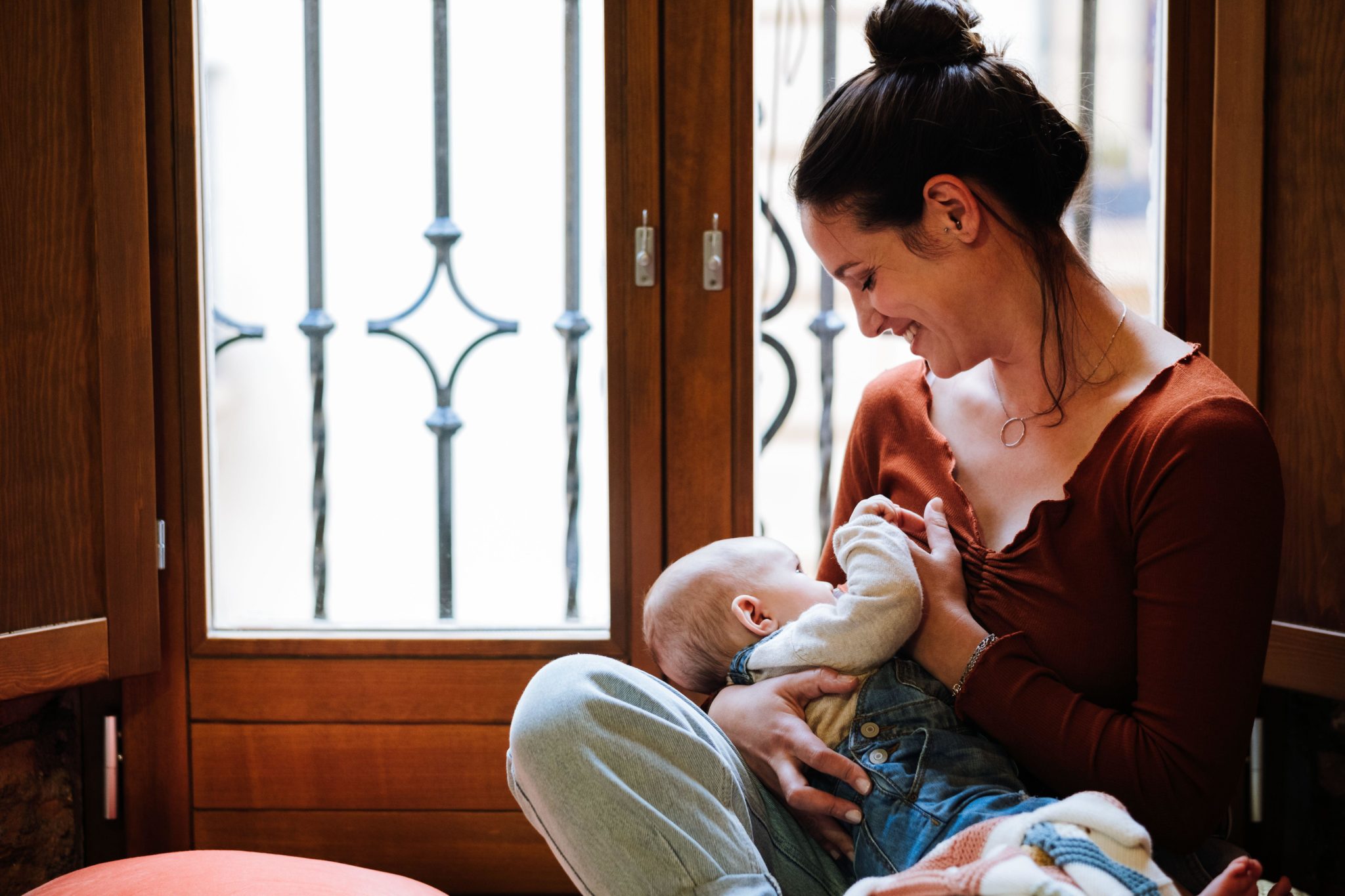Breast milk is often called “nature’s first vaccine” and this week on Show Me the Science, Professor Luke O’Neill explained why.
From the moment a baby is born, its immune system is still immature and wide open to infection.
Breast milk steps in as the baby’s first line of defence, passing on antibodies, immune cells and even the benefits of vaccines the mother has received.
Prof O’Neill explained why this “passive immunisation” is so powerful in protecting babies against infections, hospitalisations and even long-term risks like obesity and diabetes.
“The baby’s immune system is immature, that’s the word we use, like much of its physiology,” he said.
“It hasn’t got much of an immune system, so it needs the mother’s milk to help protect it against infection, to give it time for the immune system to grow and develop.
“Certainly, in the womb, it’s got no immune system; so the mother’s immune system goes into the baby.”
 A woman breastfeeding her baby. Image: Alamy Stock Photo
A woman breastfeeding her baby. Image: Alamy Stock PhotoProf O’Neill explained that a key component transferred from mother to baby in breastmilk is an antibody called IgA.
“When that goes into the baby, what’s really interesting is it coats the baby’s mouth,” he said.
“It coats the baby’s windpipe, it coats the baby’s gullet, all over down the oesophagus, it gets down into the gut and forms a wall.
“That wall then contains a repellent for bacteria and viruses.
“So, if a bacteria gets into the baby’s mouth or into the lungs, the IgA kills it.”
Low breastfeeding rates
Despite the widespread understanding of the benefits of breastfeeding, Ireland’s breastfeeding rates are among the lowest in the world.
“There can be all kinds of reasons for this,” Prof O’Neill said.
“It can be various stresses that the poor mother has to go through, it can be cultural.
“A big reason though is insufficient support.
“In other countries, there’s more midwives to help women, because [breastfeeding] is not an easy thing to do.
“In fact, in Ireland, the Nurses and Midwives Association are asking for this, and they’re saying that 82% of hospitals have insufficient support for this.”
According to Prof O’Neill, investing more money into encouraging mothers to breastfeed would save the health service money down the line.
Main image: Prof Luke O’Neill in the Newstalk studio. Image: Newstalk









